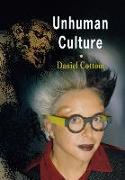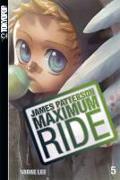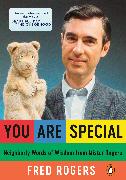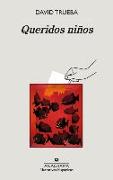- Start
- Unhuman Culture
Unhuman Culture
Angebote / Angebote:
Unhuman CultureDaniel Cottom"Uhuman Culture takes the categories of the person and the Other, the human and culture, and questions whether their opposition is as fixed as we would think. In particular, Cottom is interested in how language and art animate the human. Our tendency to think and write passionately about the art we make leads him to criticize our 'perennial and perhaps inescapable tendency to underestimate the art in humanity and overestimate the humanity of art.' At issue in this clever chiasmus is the lack of difference separating the human from the unhuman."--Bloomsbury ReviewIt is widely acknowledged that the unhuman plays a significant role in the definition of humanity in contemporary thought. It appears in the thematization of "the Other" in philosophical, psychoanalytic, anthropological, and postcolonial studies, and shows up in the "antihumanism" associated with figures such as Heidegger, Foucault, and Derrida. One might trace its genealogy, as Freud did, to the Copernican, Darwinian, and psychoanalytic revolutions that displaced humanity from the center of the universe. Or as Karl Marx and others suggested, one might lose human identity in the face of economic, technological, political, and ideological forces and structures.With dazzling breadth, wit, and intelligence, Unhuman Culture ranges over literature, art, and theory, ancient to postmodern, to explore the ways in which contemporary culture defines humanity in terms of all that it is not. Daniel Cottom is equally at home reading medieval saints' lives and the fiction of Angela Carter, plumbing the implications of Napoleon's self-coronation and the attacks of 9/11, considering the paintings of Pieter Bruegel and the plastic-surgery-as-performance of the body artist Orlan.For Cottom, the unhuman does not necessarily signify the inhuman, in the sense of conspicuous or extraordinary cruelty. It embraces, too, the superhuman, the supernatural, the demonic, and the subhuman, the supposedly disjunctive animal, vegetable, and mineral kingdoms, the realms of artifice, technology, and fantasy. It plays a role in theoretical discussions of the sublime, personal memoirs of the Holocaust, aesthetic reflections on technology, economic discourses on globalization, and popular accounts of terrorism. Whereas it once may have seemed that the concept of culture always, by definition, pertained to humanity, it now may seem impossible to avoid the realization that we must look at things differently. It is not only art, in the narrow sense of the word, that we must recognize as unhuman. For better or worse, ours is now an unhuman culture.Daniel Cottom is the David A. Burr Chair of Letters at the University of Oklahoma. Among his books are Ravishing Tradition: Cultural Forces and Literary History, Cannibals and Philosophers: Bodies of Enlightenment, and , the latter also available from the University of Pennsylvania Press.2006 | 216 pages | 6 x 9 | 18 illus.ISBN 978-0-8122-3956-0 | Cloth | $45.00s | �.50 ISBN 978-0-8122-0169-7 | Ebook | $45.00s | �.50 World Rights | Cultural StudiesShort copy:Through a wide-ranging study of literature, art, and philosophy, Daniel Cottom explains why ours is an unhuman culture and how this culture still gives us reason for hope.
Folgt in ca. 15 Arbeitstagen




